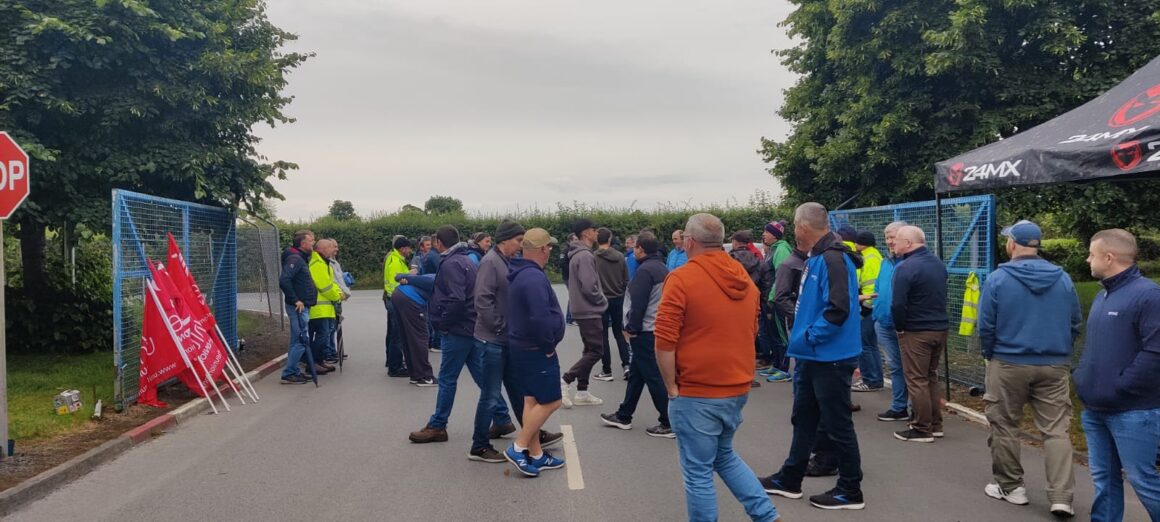By Donal Devlin
At the time of writing, over 650 Tara Mines workers outside Navan, Co. Meath are blockading their workplace defiantly defending their jobs and livelihoods. They are members of SIPTU, Connect and Unite trade unions. These jobs have been in the crosshairs since the mine’s owner, Boliden, announced it would “temporarily” shut the mine down. This is despite being a highly profitable company for the past 20 years. In 2021 alone it raked in a whopping €19.8 million.
Things came to a head yesterday when Boliden management rejected 15 cost-saving measures proposed by the unions at a Workplace Relations Commission (WRC) meeting. It appears the company wants to cut jobs, pay and conditions and then re-open it. When news reached workers of this belligerent approach by management, those on the day shift walked off the job immediately, and now a 24-hour protest has been put in place at the gate.
Militant action needed
The result of this action is that production has ceased in Europe’s largest zinc mine and the fifth-largest in the world. This morning, an Iarnrod Eireann train was turned around after a delegation of workers approached its driver, explaining the dispute that was taking place and what was at stake. The train was due to bring €1.3 million worth of lead and zinc to Dublin Port but travelled back empty. This shows the power of this workforce and the pressure they can put on Boliden.
This company is not interested in engaging in meaningful negotiations via the official industrial relations structures. The militant action that the workers took in the last 24 hours is necessary, combined with the democratic organisation of the strike by uniting workers from all three unions to discuss the tactics and strategy to win. Already discussions and debates have taken place at the factory gate. Maximum pressure needs to be exerted on Boliden before the site is due to close next Friday.
A vital resource
Through the intervention of Socialist Party members in the unions, the idea that the company should be nationalised and run under public ownership has been raised. This proposal has gained a real echo amongst the workers. We cannot allow these jobs, skills and livelihoods to be gutted in the interests of private profit and a regime of low-paid, outsourced jobs to be put in their place.
Zinc is a crucial mineral for the development of renewable energy and for construction in general. This makes the proposal for a publicly-owned company that could be linked with a plan to transform our energy infrastructure to 100% renewable energy all the more compelling.












